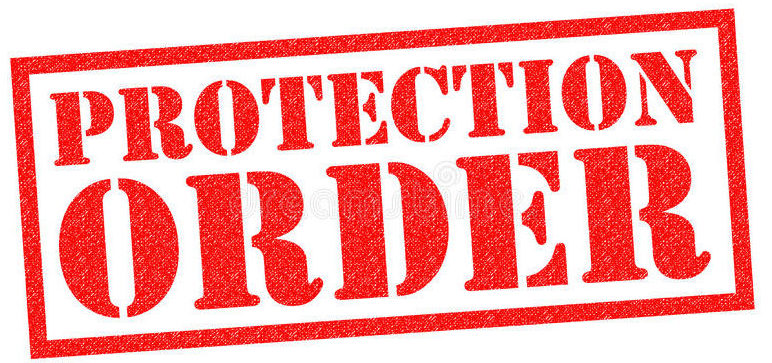
In a time where domestic violence is an ever increasing and worrisome problem in our society and across the globe, it is important for abused persons to know how the law may protect them and what options are available to them. Many abused persons live in fear of retaliation, fear of having nowhere to go or fear of no financial support, if they seek help. In a number of cases the alleged abuser is the main provider, this results in a situation where the abused person feels they have no options because without the provider they will have no place to stay or income to maintain themselves or the children and other dependents.
The law in Jamaica makes provisions that may help to dissuade these fears. The law allows an abused person to obtain court orders, without the knowledge of the abuser, to keep the abuser away from the abused person. The Court may also make orders in relation to the home and financial provisions.
What is a protection order and how can it protect me?
A protection order is an order made by the Court to assist in the protection of an abused person. The Court has the power to make this kind of order by virtue of the Domestic Violence Act.
A protection order may prevent an alleged abuser from doing one or more of the following:
- entering or remaining in the home;
- entering or remaining in the area within which the home is located;
- entering the place of work or education of the abused person;
- entering any particular place (linked to the abused person); or
- bothering or molesting the abused person.
Behaviour that can be categorized as bothering or molesting include things like:
- watching the home, office or school of the abused person;
- following or lay waiting the abused person;
- persistent phone calls;
- abusive language or behaviour towards the person which causes annoyance or can be classified as ill-treatment; and
- damaging property owned or enjoyed by the abused person.
What do I need to prove to get a protection order?
To successfully apply for a protection order, the applicant must satisfy the Court that the alleged abuser:
- has used or threatened to use violence against the abused person;
- has caused physical or mental injury to this person; or
- in all the circumstances the order is necessary for the protection of the abused person. What this means is, when the Court considers everything as a whole, including things like, the conduct of the alleged abuser, the well-being of the abused person and the safety or lack thereof of the abused person, all things point to the need for the order.
Who may make the application to the Court?
It is important to note that any person can be the victim of abuse and may make an application to the court, and yes this does include men being abused.
There will be cases where the abused person is unable to make the application for him or herself, for example, a child or someone with a mental incapacity. For this reason, the law allows a number of persons to make the application on the abused person’s behalf.
An application may be made by:
- The adult person who is being abused, that is, –
- the spouse being abused by the other spouse (includes a common law spouse and former spouse);
- the parent being abused by their child (this may be an elderly parent);
- a member of the alleged abuser’s household who is being abused;
- a person who has a visiting relationship with the alleged abuser, meaning the abused person does not have to reside with the abuser, such as, a boyfriend or girlfriend who visit each other and one of them abuses the other.
- A police officer or any other person aware of the alleged abuse may make the application on behalf any of the persons listed above if they obtain the permission of the Court.
- In the case of a minor or a dependent (for example, a person with a mental or physical disability) –
- a parent or guardian of the child or dependent;
- a person with whom the child or dependent resides;
- a dependent who is not mentally disabled;
- a government approved social worker; or
- a police officer.
- No permission from the Court is required in the case of minors or dependents for an application to be made on their behalf.
I am afraid that summoning my abuser to Court will make things worse for me before I actually get the order. How do I proceed?
The law allows for the abused person to make the application to the Court without the alleged abuser’s knowledge or presence, this is called an ‘ex parte’ application. This approach is permitted only if the delay in summoning the alleged abuser to Court might result in a risk to the abused person’s safety or result in serious or undue hardship.
This will be the case in most instances of domestic violence, particularly those involving physical violence or the threat of physical violence.
In these cases, the protection order made is an interim order only. This is to prevent any injustice to the alleged abuser and to give him or her a chance to put forward their own side and evidence. The interim order will include a date for a hearing to determine whether the order must be made final or discharged.
The order must be given to the alleged abuser. However, due to the nature of the circumstances you make ask a police officer to deliver the order.
If you have been unable to convince the Court that a protection order is needed you may appeal to the Court of Appeal.
I received a protection order naming me the alleged abuser, what can I do?
As mentioned above, if an order is made against you and you were not present at Court, the order you have received is an interim order. Meaning it is not final and you will have a chance to appear before Court to have it discharged. The interim order will specify a date for this hearing. You will be given an opportunity to disprove any allegations made against you which are inaccurate or provide clarity about the situation to show the order should not have been made.
If you do not show up to the hearing a final order may be made in your absence.
Instead of waiting for this specified date, you also have the option to make your own application to the Court to have the order discharged.
If an order is made against you or upheld after this hearing or application, you may appeal to the Court of Appeal.
My abuser has breached the protection order, what are the consequences?
Once the order has been personally served on the alleged abuser, that is the order is handed to him directly, he or she will commit a criminal offence if they ignore the conditions listed in the order.
The alleged abuser may be arrested or summoned to Court and if found guilty of breaching the order, he or she will be liable to a fine not exceeding ten thousand dollars ($10,000.00) or to a term of imprisonment not exceeding six months or both. It is arguable that this fine needs to be updated to be more of a deterrent given that some cases are a matter of life and death.
Other key points
- Depending on the situation a maintenance order may also be made, for example, the alleged abuser is a spouse or father and the main provider in the home.
- An occupation order may also be obtained, for example, the alleged abuser owns the home, but the abused person has nowhere safe to go. (A separate article will be published on occupation orders).
- The court may order either or both parties to attend counselling.
In concluding, it is recommended that abused persons seek legal advice in relation to the steps they can take to protect themselves from their abusers. The law provides a number of options to assist in their protection and limit the fear of adverse financial and residential repercussions.
—–
After the completion of this article, it was announced that amendments will be made to the Domestic Violence Act. One of the key amendments to be made is the increase in the penalty for breaching a Protection Order. The fine will be increased from a maximum fine of $10,000 to $500,000 and the maximum term of imprisonment will be increased from six months to one year. The writer believes this is a step in the right direction to assist in the reduction of domestic violence in Jamaica. Stay tuned for an update once all amendments have been passed and made the law!
Deniece A. Beaumont Walters | Attorney-at-Law | DBW Legal
This article is for general information and educational purposes only and does not constitute legal advice. If you require legal advice Deniece can be contacted at law@dbwlegal.com or 876-277-2022 to set up a consultation.
